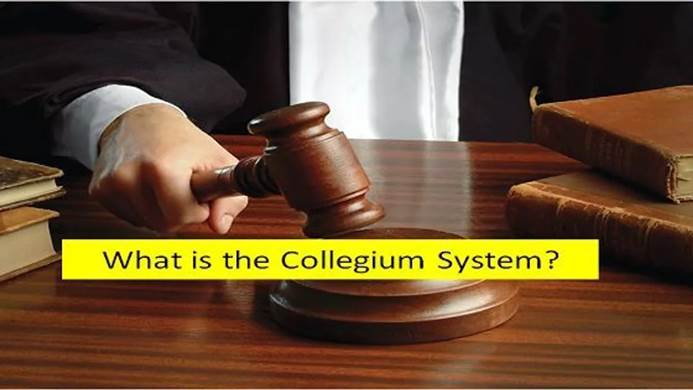Description

Copyright infringement not intended
In News
- Recently the Supreme Court collegium, headed by the Chief Justice of India (CJI) discussed the process of appointment of the next CJI.
- The Present Chief Justice of India is set to retire on 26th August.
Details
- The Union Law Minister asks the outgoing Chief Justice of India to recommend the next CJI.
- As per the Memorandum of Procedure (MoP);
- CJI should be “the senior-most judge of the Supreme Court considered fit to hold the office.”
- Present CJI’s views must be asked “at the appropriate time” and there is no time limit for the process, but it generally starts a month before the retirement of the CJI.
Collegium System
- Under the Collegium System, appointments/elevation of judges/lawyers to the Supreme Court and transfers of judges of High Courts and Apex Court are decided by a panel of the Chief Justice of India and the four senior-most judges of the Supreme Court.’
- The word ‘Collegium’ is nowhere mentioned in the Indian Constitution, it has come into force as per Judicial Pronouncement.
Evolution of Collegium System
- Under the Constitution, The Judges of the Supreme Court are appointed by the president. The chief justice is appointed by the president after consultation with such judges of the Supreme Court and high courts as he deems necessary.
- The other judges are appointed by the president after consultation with the chief justice and other judges of the Supreme Court and the high court as he deems necessary.
- The consultation with the chief justice is obligatory in the case of the appointment of a judge other than the Chief justice
- First judges case (1982): The Supreme court held that consultation does not mean agreement and it only means an exchange of views.
- Second judges case (1993): The court changed its earlier ruling and changed the meaning of the word consultation to consensus.
- It ruled that the advice tendered by the CJI is binding on the President in matters of appointment of SC judges. But any such advice would be tendered after CJI consults with two of his most senior judges.
- Third judges case (1998): The consultation process should be based on the plurality of judges.
- CJI should consult a Collegium of four senior-most judges before making a recommendation to the President and even if two judges give an unfavourable opinion, he should not send the proposal to the President.

Qualifications for Supreme Court Judges
- A person shall not be qualified for appointment as a Judge of the Supreme Court unless he/she
- Is a citizen of India, and
- Has been for at least five years a judge of a High Court or two such Courts in succession; or
- Has been for at least ten years an advocate of a High Court or two or more such Courts in succession or is, in the opinion of the President, a distinguished jurist.
- Every person appointed to be a Judge of the Supreme Court shall, before he/she enters upon his/ her office, make and subscribe before the President an oath or affirmation according to the form set out in the Third Schedule of the Constitution.
- The Constitution does not prescribe a minimum age limit for a judge to occupy his/her office.
- A Judge of the Supreme Court continues to hold the office till he/she attains the age of 65 yrs.
- A Judge of the Supreme Court may tender their resignation to the President even before he/she reaches the age of 65 years.
- A Judge of the Supreme Court, after retirement, shall not do legal practice in any court in the territory of India and shall not plead before any authority under the Government.
https://indianexpress.com/article/india/supreme-court-collegium-meets-on-next-cji-new-postings-8066666/
1.png)
https://t.me/+hJqMV1O0se03Njk9















